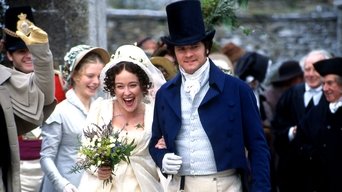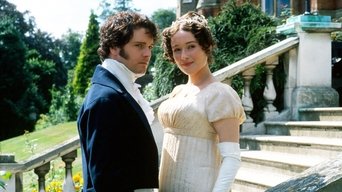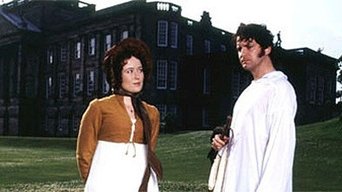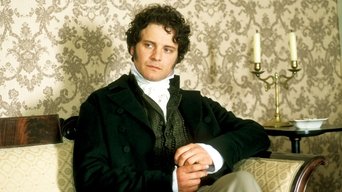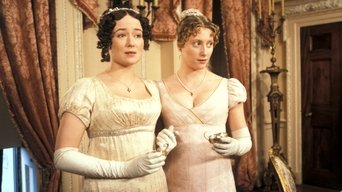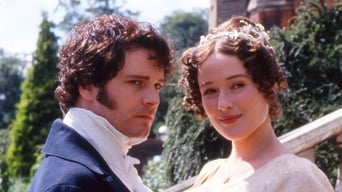OpenID
Although this version gets great reviews I found it seriously lacking in its faithfulness to the original Jane Austen novel. I didn't like it. There are far too many 'innovations' most especially the scenes of Darcy in his bath and worse Darcy diving into the lake and meeting Elizabeth half dressed and soaking (!). Ridiculous - and not in the original novel. In the novel Darcy and Elizabeth meet at Pemberley and the shock to both is real, but they are both fully clothed. The action is in their mutual surprise/embarrassment at meeting. Obviously the producers did not, for some reason, like the original Austen scene and thus this ludicrous innovation. Mrs Bennett is way overacted - her voice is loud and harsh and grates for most of the movie. Her frantic and real concern over her daughters' plight should their father die first is completely lost in this bizarre over the top acting. The younger Miss Bennetts are also overdone. In the novel they are silly, mindless girls but in this movie they are wildly dashing about the place in a loud, boisterous manner. Mr Collins in the novel is a quasi-comic character but here he is depicted as a predatory, creepy character. I found his scenes to be particularity disturbing rather than comic. Maybe the object of this production was to make Pride and Prejudice accessible to a wide audience and it seems to have succeeded in doing this.but it sadly left Jane Austen back at the starting gate. I recommend reading the novel for a fascinating look at the Regency Period and the manners and norms of that day. Sadly, this version will not do that.
jenhowell77
This is, bar none, the best of the Austen adaptations, alongside Ang Lee's "Sense and Sensibility" and the 1995 Roger Michell version of "Persuasion." If you saw the Keira Knightley P&P and think you know the story, think again Two hours is simply not enough time to do justice to the hilarious characters and biting satire of Austen, nor can the romances of the story be fully developed and paid off in that amount of time. Six hours is exactly right, and there is not a second wasted. Every bit of screen time is devoted to either developing character, advancing the story (and giving the necessary background), or painting a portrait of the Regency era. You can watch and re-watch this film and come away with new details each time.Moreover this series was perfectly cast. Of course, there's Colin Firth. But Jennifer Ehle is Elizabeth Bennet and David Bamber comes close to stealing the whole show as Mr. Collins.As an avid reader of all Austen's novels, this movie is one of the few that completely captures Austen's spirit, her wit, and the complexity of these seemingly simple little stories.
dmckinleyp
Like others here, I'm writing out of a love of the novel and a sheer amazement that it was finally produced in faithful manner, with enough drama and TIME spent in the story, and fabulous acting to do justice to Jane Austen's towering achievement. It's almost pointless to add my 10-star review to the others, many more insightful than mine, but I cannot help myself. This is the epitome of television adaptation, accomplishing what a single movie (think Keira Knightly, or even Laurence Olivier) could not. It did two extra things - Colin Firth brought Darcy to life as he deserved in the novel, and it introduced us to the refined (and beautiful) talents of Jennifer Ehle. I have followed both their careers ever since watching this. This series is one for the ages, an Elizabethan counterpart to how Breaking Bad documents our own uglier, tortured age.
SimonJack
Of the several versions of "Pride and Prejudice" I have seen, this 1995 BBC mini-series is by far the best. First, it gives us more of the story than any other version, with 5 ½ hours of film time. The 1980 minis- series was more than an hour shorter; the 1940 film was under two hours; and the 2005 film was barely two hours. Second, it develops all the characters more fully, including the lesser supporting roles. Third, its script additions to the story seem to fit best Jane Austen's style and plot, so they enrich the story where otherwise we would have holes. Austen said she didn't know the manners and behavior of men when they were not in the company of women. So she didn't write scenes or situations with just men in them. Writer Andrew Davies wrote some excellent filler for this film. The opening with Darcy and Bingley riding their horses across fields to see Bingley's new country home is a great introduction. Toward the end, we have another perfect scenario. Darcy rides to Pemberley a day ahead of his entourage. He stops to cool off with a swim in his lake, and then bumps into Elizabeth as he walks up to his house in dripping wet clothes. It is a more human way for the couple to meet to rekindle their relationship. Here, on his home territory, he loses his shyness and begins to warm up. Everything about this film excels. But the script and acting raise it above all other versions. Those who see P&P simply as a romance or love story will be satisfied with the shorter movies. For sure, it is a beautiful story of love, especially two loves. But those loves are ensconced in a critique of society and the times. Austen deals with social mores, the class system of the time, families, marriage and morality, manners and respect, and vice and virtue. And, it's how she works all this together that gives depth to the story. This film gives us the greatest satisfaction with how the love stories turn out.Most – but not all – of the characters in this version are the best portrayals among all the P&P films made. Most viewers admire Jennifer Ehle and Colin Firth for their roles. But some others are equally good, and I think a couple are very exceptional performances. For sure, Ehle is superb as Elizabeth. With her constant smile and eyes she shows restraint in her silence at times, and wonderful wit in her barbs at other times. Firth, better than anyone else in the role, shows Darcy's frustration at times over his social shyness. His consternation is very noticeable at not being able to break the ice with Elizabeth as his attraction for her grows.Lydia and Kitty have much more screen time here with their childishness. It gives us a better sense of how Mr. Bennett felt as the father of the silliest girls anywhere. Mr. Bennett is best played here by Benjamin Whitrow, although Moray Watson was very good as well in the 1980 mini- series. Whitrow shows the right amount of disdain, affection, hurt and withdrawal. It's clear why Lizzie likes him, because of his clear-headedness, but she also rues that he has lost respect for his wife. Crispin Bonham-Carter seems best fit for the part of Mr. Bingley, both in physical appearance and in his persona. The Bingley sisters don't stand out in one particular film. But Anna Chancellor has more time to develop her character here, and gives a biting portrayal of the caustic Miss Bingley. All of the roles of Jane have been very good; but a nod goes to Susannah Harker in this 1995 film. She is more naturally shy in her humility and goodness. The character of Wickham is played well in all versions; but again, Adrian Lukis really shines in this one. We see the uncertainty in his face as he learns from Lizzie that her views of Mr. Darcy are changing. Charlotte Lucas is played best here by Lucy Scott. She seems more natural, yet uncomfortable with her appearance. She is adroit in her observations and in the knowing exchanges she has with Lizzie. The only role I didn't think was very good or right was that of Lady Catherine de Bourgh. Barbara Leigh-Hunt seems way too old to have a young teenage daughter. Judy Parfitt nailed that role in the 1980 mini-series. I saved for last the two roles I think excel the most – even above those of Elizabeth and Darcy. No one in any other version comes close to the outstanding performance Alison Steadman gives here as Mrs. Bennet. She put such exuberance and flighty vitality into the role of the silly, nearly hysterical housewife, that it was hard not to dislike her. We can empathize with Mr. Bennet and understand how he came to lose respect for her. Steadman brings her consummate acting abilities to the part and engages viewers to feel real embarrassment for her. That is great acting. And, that's what Elizabeth begins to see toward the end. Finally, Mr. Collins. David Bamber's interpretation is likely the most difficult of any Austen role to play. Did Jane Austen write or envision him as such a wimpish and puerile person? Clearly, she wrote some criticism, if not sarcasm, for the church of the time in its relationships with the classes. Bamber's portrayal of Collins helps focus on that issue. This film gives a much better view and treatment of this character than any other film. So much went into the making of this series, and it is nearly perfect in all aspects. It's hard to imagine that any attempt will even be made to try to better this version of "Pride and Prejudice." It is the classic film rendition of a great classic novel.
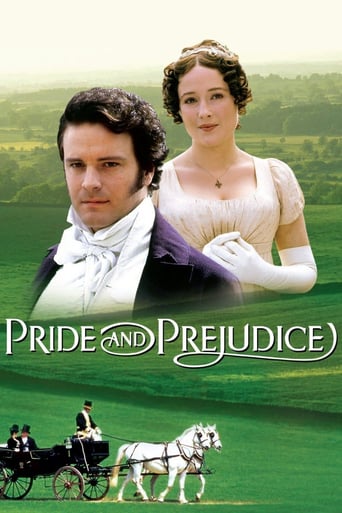
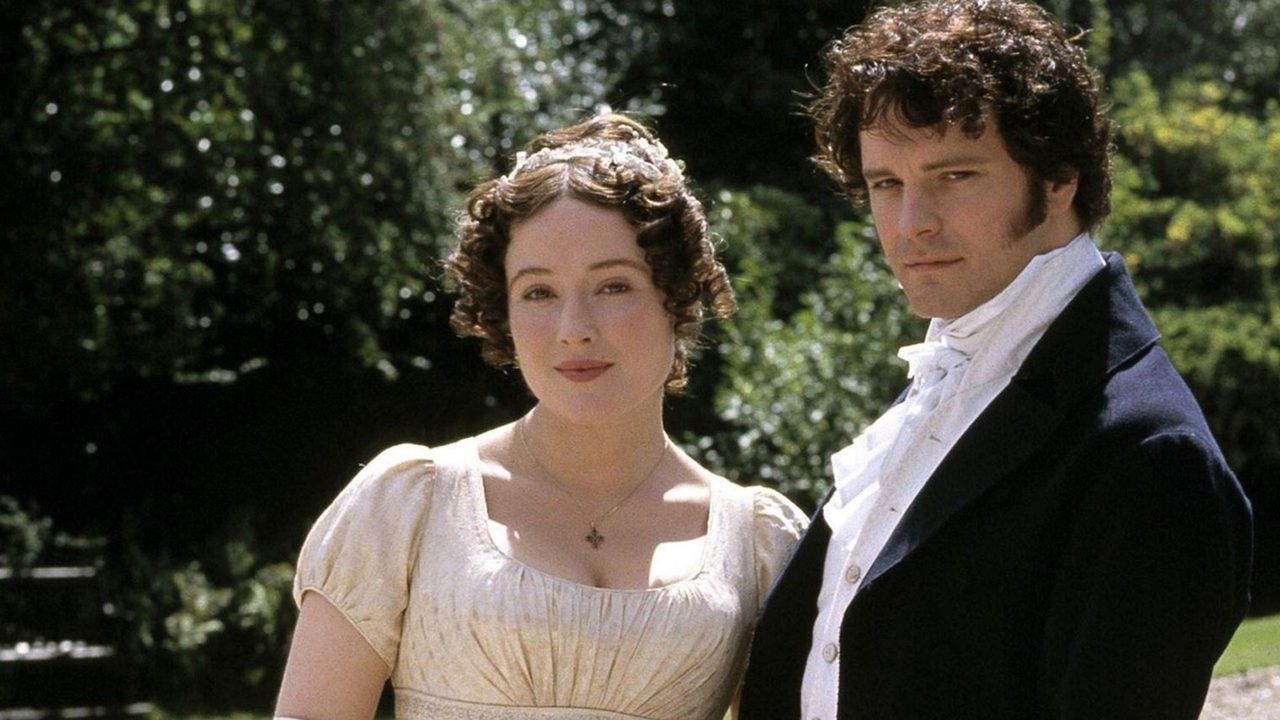
 AD
AD

